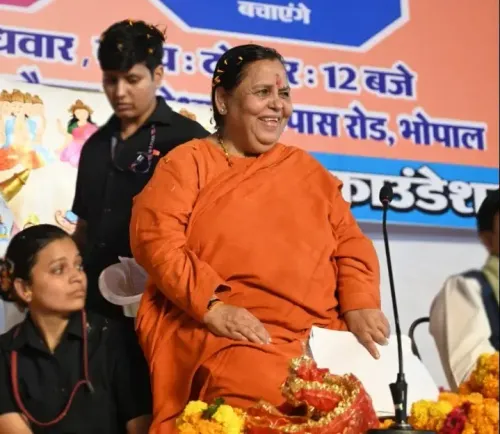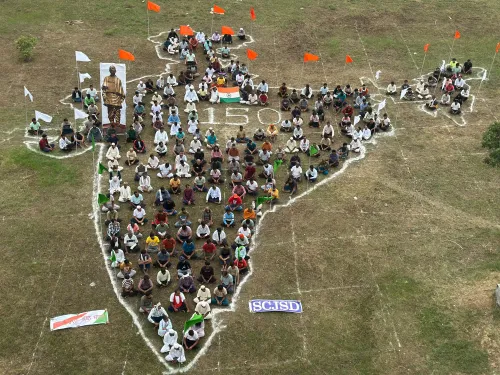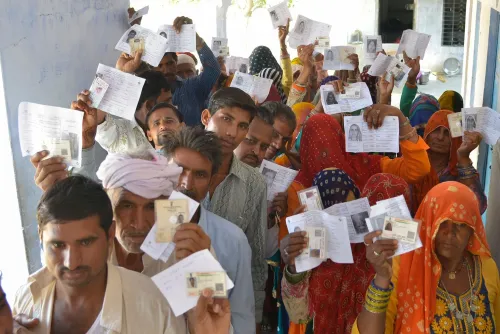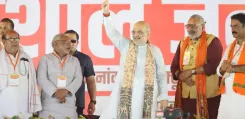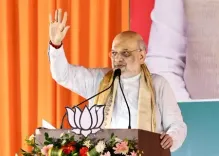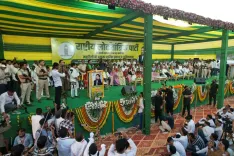HM Shah Criticizes Opposition for 'Fear-Mongering' on Waqf Bill, Alleges Covering Up of Corruption & Land Misuse
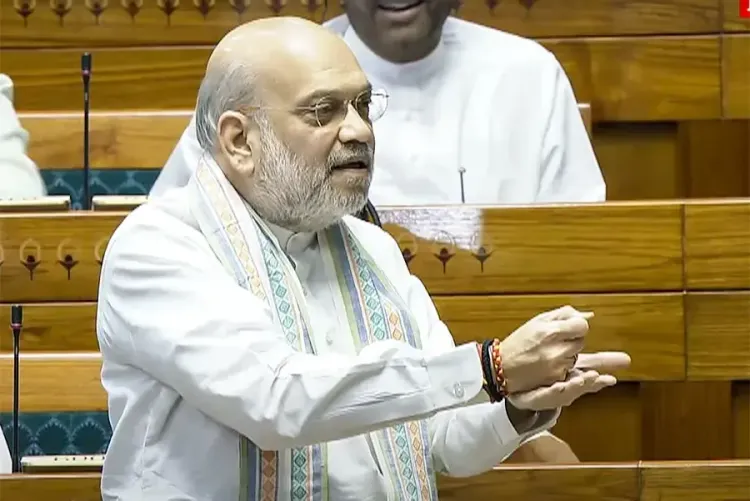
Synopsis
Key Takeaways
- Amit Shah critiques UPA's 2013 Waqf amendments.
- Waqf Board's role in ensuring accountability emphasized.
- Misuse of Waqf properties highlighted with examples.
- Current Bill aims to rectify past mismanagement.
- Calls for transparency in Waqf governance.
New Delhi, April 2 (NationPress) Union Home Minister Amit Shah, during the debate on the controversial Waqf Amendment Bill 2025 in the Lok Sabha on Wednesday, strongly condemned the previous UPA government and provided a pointed critique of the 2013 amendments to Waqf laws.
Labeling these amendments as politically driven actions hastily introduced before the 2014 elections, he brought attention to the serious repercussions of these changes, including the transfer of 123 VVIP properties in Delhi’s Lutyens zone to Waqf authorities.
HM Shah contended that the current Bill would not have been necessary if these amendments had not been enacted.
The Home Minister stressed the vital role of the Waqf Board in ensuring accountability and curbing financial mismanagement.
He criticized the exploitation of Waqf properties, citing instances such as 29,000 acres of Waqf land in Karnataka leased out, properties valued at Rs 2 lakh crore rented to private entities for 100 years, and 500 acres leased to a five-star hotel for just Rs 12,000 per month.
The Union Home Minister also highlighted irregularities in Tamil Nadu, where 12 villages covering 250 hectares were transferred to Waqf ownership, and 400 acres of temple land was declared as Waqf property.
HM Shah pointed out that the High Court had to intervene to prevent the confiscation of 602 acres of land in Bengaluru.
He cautioned against allowing non-Islamic individuals into Waqf management, asserting that such interference would undermine the trust's framework and integrity.
Drawing parallels with other religious trusts, HM Shah remarked that Hindus manage temples and Christians oversee churches, suggesting that external interference across religions could endanger societal harmony.
He underscored the need for vigilance to eradicate collusion and corruption that has plagued previous administrations.
Critiquing interference in religious affairs, he elaborated on the foundational tenets of Waqf as a trust rooted in Islamic faith, composed of trustees who must align with the religious beliefs of the institution’s founders.
Home Minister Shah firmly stated that discussions in the House would not be swayed by personal preferences, emphasizing that every elected representative speaks for the people.
He dismissed any idea of shielding decisions from judicial review, questioning where individuals whose land has been wrongfully taken would seek justice.
The Union Home Minister rejected claims that minorities would oppose the Bill, asserting that it is a law of the Parliament and must be respected as the law of the government of India.
HM Shah clarified that the law would be enforced following notification and explained that land ownership decisions, including those for temples, would be determined by the Collector, who would ascertain whether Waqf land is government property.
He noted that churches and gurdwaras have been established without encroaching on government land, highlighting the Collector's role in ensuring fairness and legality in land disputes.
HM Shah also accused the Opposition of manipulating minority communities for electoral advantage, leveraging fear to sway votes.
He reiterated and clarified doubts raised by some members that Waqf governance must adhere to Islamic principles, with no allowance for non-Islamic individuals.
He criticized the Opposition for resisting transparency and accountability, asserting that Waqf funds must aid the underprivileged rather than be misappropriated.
Recalling comments by Lalu Prasad Yadav in 2013, HM Shah noted Yadav's call for stricter regulations to tackle the encroachment and sale of Waqf properties.
While Yadav’s requests went unheeded under earlier administrations, the Union Home Minister credited Prime Minister Narendra Modi’s government with implementing measures to address these issues. He pointed out instances of misuse, including the illegal sale of prime properties like the Dak Bungalow in Patna.
HM Shah elaborated on Waqf funding, highlighting its dependence on religious contributions from Muslim communities.
He stressed that Waqf properties should benefit widows, marginalized Muslims, and youth, rather than being leased for minimal amounts. He also mentioned that numerous Muslim communities, including Vohra, Pasmanda, and Shia, prefer registering properties under Charitable Trusts instead of Waqf law.
The Home Minister emphasized that donations directed towards Waqf are intended for rightful purposes, and interference in its administration has been a contentious issue since 1995.
HM elaborated on amendments reducing revenue from 7 percent to 5 percent, ensuring that funds continue to support Waqf activities such as mosque construction.
He assured that tribal lands, ASI (Archaeological Survey of India) protected sites, and private properties would remain secure. He condemned the 2013 law as unjust, revealing that Waqf land expanded by 3 lakh acres between 2013 and 2025, raising concerns about irregularities.
HM Shah reaffirmed the BJP's principle of enacting laws for justice, not electoral gain, citing initiatives like women’s reservation and anti-conversion laws. He advocated for transparent audits and inquiries into Waqf land ownership, ensuring fairness and adherence to legal standards.
The Home Minister Shah reiterated the need for transparency and accountability in the management of Waqf properties.
He emphasized that the current Bill aims to rectify past mismanagement and guarantee the fair use of Waqf resources for community welfare.
HM Shah expressed confidence that the Muslim community is beginning to understand the significance of these reforms and reaffirmed the government’s commitment to promoting accountability and reform.
He reiterated the BJP's pledge to enact laws for justice, not for vote banks, and expressed optimism that the Muslim community would recognize the importance of these reforms.
The debate on the Bill continues in the Lok Sabha, with the Union Minister for Parliament Affairs Kiren Rijiju set to respond in the House.

